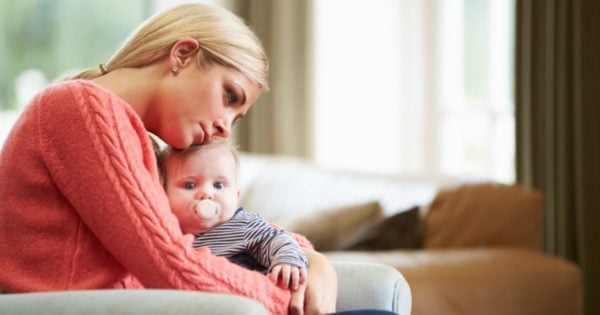Motherhood regret. It’s a feeling that many women experience but often keep to themselves – until someone else talks about it openly.
Motherhood regret has been a hot topic following an article in Fairfax Media over the weekend, where three mums spoke out honestly about their feelings. Gretel Killeen added to the debate on The Project on Monday night by urging children not to think they weren’t loved by their parents.
Maternal coach Dr Joan Garvan has been following the topic of motherhood regret since the 1990s. She did her PhD on it, and says international research on the subject “just keeps coming”.
“There’s a lot of unhappiness with the way things are,” she tells Mamamia. “That’s why it keeps coming up all the time.”
Dr Garvan refers to it differently: “motherhood ambivalence”. Because in almost all cases, women love their children, just not their lives after having them. For her PhD, she did extensive interviews with women, and found that even those who always wanted to have kids often struggle with motherhood.
“It’s just the reality of what life is like afterwards,” she explains.
A lot of women are in relationships where they think they have gender equality. But after the baby comes along, things change.
“There’s an easy falling back by partners: ‘Well, you’re at home, you look after the kids, so you do the housework.’ That’s through the weekend, too. The easy falling back onto that is distressing for some of them. They didn’t think it was going to be like that.”


